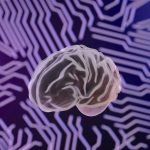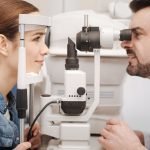Sleeping pill lowers key Alzheimer’s disease markers, study finds
A small study has discovered that taking a sleeping pill before bed can lead to a decrease in levels of key Alzheimer's proteins.
This is...
Artificial intelligence: a new hope for early Alzheimer’s prediction
Alzheimer's disease is a serious problem. It affects millions of people, especially older adults. It harms the brain and makes it hard for people...
Spotting early signs of memory loss through the eye
Researchers at Duke Health have come up with a clever way to tell if someone might be starting to have memory problems.
They can do...
A new hope in the fight against Alzheimer’s disease
The Problem at Hand
We've all heard about Alzheimer's, a disease that affects a person's memory and thinking. It makes it hard for people to...
Young-onset Alzheimer’s can be diagnosed from as early as 30 – and the symptoms...
Alzheimer’s disease is often thought of as a condition that only affects the elderly.
But around 3.9 million people worldwide aged 30-64 live with young-onset...
Even moderate alcohol drinking is linked to faster Alzheimer’s development
Wake Forest University scientists have found a connection between alcohol consumption and the accelerated development of Alzheimer's disease.
Alzheimer's disease is the most common form...
Exercise could be key to slowing down Parkinson’s disease
Parkinson's disease is a common illness that affects a lot of people.
Some brain doctors at the Catholic University in Rome think that heavy exercise...
The super gran and gramps: why some elderly folks are as fit as a...
Have you met someone in their eighties who is as sharp as a youngster and fast on their feet? We call them "superagers".
These special...
People with Parkinson’s may benefit from cardio, weight training and yoga – here’s what...
Many people associate Parkinson’s disease with the physical symptoms it causes – such as tremors, muscle stiffness, and balance problems – which can all...
A new beacon for Alzheimer’s disease: tracking its course with a tau marker
Alzheimer's disease can feel like a treacherous journey. In the early stages, sticky plaques made of amyloid-beta proteins lead the way.
But as the disease...









